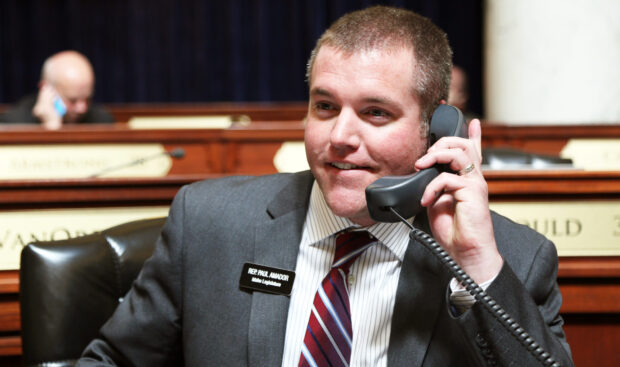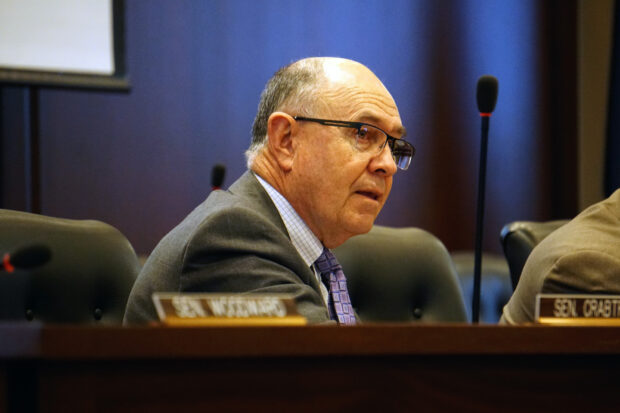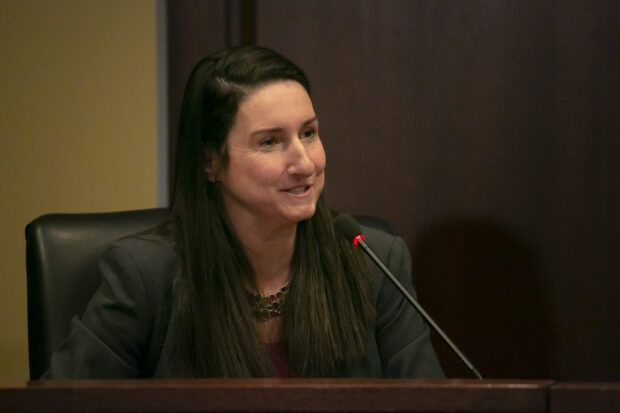It’s like the 2021 Legislature never left Boise. And in one real respect, that’s true.
On May 12, the House of Representatives put the longest legislative session in state history on hiatus. The House voted to go into recess and return to session sometime later in the year.
That “sometime” comes Monday morning, when lawmakers return to the Statehouse.
They might not take up anything education-related. But they could.
They might stick to a limited to-do list. But not necessarily.
They might wrap up their business by the middle of the week. Or maybe not.
The Legislature is coming back, like it or not. And many Statehouse regulars don’t.
What will happen
It’s going to start early Monday morning, and start quickly.

The House Ways and Means Committee will meet at 7:30 a.m., Chairman Paul Amador told Idaho Education News Thursday. The agenda hasn’t been posted yet, but lawmakers have submitted a whopping 32 bills for the committee to look at. (Lawmakers had to turn in draft bills to House leadership by 5 p.m. Wednesday.)
Amador, R-Coeur d’Alene, hasn’t seen any of the 32 bills — and draft bills aren’t public documents until they actually come before a legislative committee. But lawmakers were told to stick to one topic: the Biden administration’s COVID-19 vaccine mandates, and their impacts on private employers and federal contractors, including Idaho universities.
“All of them will be somehow related to that federal mandate,” Amador said.
Don’t expect full hearings on any of these bills first thing Monday morning. Ways and Means’ job is to decide whether to introduce, or “print” bills. The bills that clear this hurdle will get assigned to a committee for a full hearing.
Ways and Means is also on the clock. The House is scheduled to go onto the floor at 9 a.m.
The Senate is also scheduled to go on the floor at 9 a.m., with a lot less on its agenda.

By and large, the Senate would rather wait on vaccine-related policy bills until January, when the 2022 session begins, Senate President Pro Tem Chuck Winder said Wednesday. Instead, he said, the Senate might consider a nonbinding memorial decrying the mandates, and a $2 million spending bill to cover the costs of fighting the mandates in federal court. Idaho has already signed onto two lawsuits opposing the mandates, so the spending bill can’t wait.
“If we’re going to pay our attorneys, we’re going to need some funds,” said Winder, R-Boise.
The House has one other pressing item on its agenda, and it could get personal.
In August, a bipartisan ethics committee voted unanimously to sanction Rep. Priscilla Giddings, R-White Bird, after she publicly identified the Statehouse staffer who has accused former Rep. Aaron von Ehlinger of rape. The House is expected to take up the matter, perhaps Monday.
In the spring, von Ehlinger resigned before the House could vote on the ethics committee’s report against him. Giddings isn’t going anywhere. And since she and House Speaker Scott Bedke, R-Oakley, are both running for lieutenant governor, she is fixing for a fight.
“The business-as-usual swamp in Boise is gearing up to begin their ‘Censorship Session,” Giddings wrote in a fundraising email Wednesday.
What might happen
The Idaho Education Association is among the Statehouse lobbying groups with low expectations for next week. Union president Layne McInelly envisions more of the “fixation on fringe issues” that marked the record-setting slog of the 2021 session.
“If the Legislature wants to do something positive for our students next week, we invite them to take up pending legislation that would allow Idaho to accept a $6 million federal grant to bolster pre-K opportunities around the state,” McInelly said.
That’s a reference to one piece of unfinished business from May: a pre-K bill that the House never considered for a vote. That controversial bill has been sitting on the House calendar since May — frozen in time, like the session itself. Theoretically, at least, the House could take up this bill, which the Senate has already passed.
And McInelly’s comments point to a bigger question about what will happen next week, and what could happen. House leadership wants all of the legislation to focus on vaccine mandates.
But will rank-and-file lawmakers go along? Will a committee chair decide to go rogue — fearing no consequences, since Bedke is a lame-duck speaker?
To coin a popular piece of Statehouse jargon, this session comes with no “sideboards,” no restrictions on subject matter.
So Andy Grover isn’t taking any chances. The head of the Idaho Association of School Administrators hasn’t heard any solid rumors to suggest education issues will surface next week. But he’ll be at the Statehouse to make sure, and to answer any questions lawmakers have.
“We’re hoping that they just hold to looking at just what they say they are going to look at,” Grover said.
Idaho Business for Education CEO Rod Gramer says he hasn’t heard much from his members — pro or con — about vaccine mandates, and their impact on employers or universities. He’s not sure what to expect next week, but he’s also in surveillance mode. “With this Legislature, you really have to be on your guard all the time.”
The Idaho School Boards Association will be watching too, albeit from a distance. A few blocks south of the Statehouse, more than 500 trustees will meet for ISBA’s annual convention next week — an event that has been in the works long before the Legislature decided on a date to reconvene.
“We will just have to wait and see,” ISBA deputy director Quinn Perry said this week.
An on-call Legislature?
House Republicans wanted this all along.
When they voted in May to take an extended recess, they said they envisioned a need to address emerging issues, maybe COVID-related.

House Democrats wanted to adjourn for the year. And as Minority Leader Ilana Rubel sifts through the rumors about what’s coming down the pike next week, her mind hasn’t changed.
“All I know is the Democrats do not want to be going back,” said Rubel, D-Boise.
That isn’t a partisan sentiment, either.
The Idaho Association of Commerce and Industry — a powerful business lobby that can hardly be described as left-leaning — took lawmakers to task Tuesday.
“The Idaho Association of Commerce & Industry applauds those lawmakers with the backbones to speak out against this unnecessary legislative session that seeks to meddle into the private sector’s ability to conduct their affairs, and we’d hope their legislative leadership can match their intestinal fortitude and resolve,” IACI President Alex LaBeau said.
This isn’t a session no one wanted.
But it is a session a number of people don’t want.
And more than that, it reflects a fundamental change in the way some lawmakers view their job description.
No longer are some lawmakers content to simply meet each winter — and occasionally come back for a brief special session, at the governor’s request. Legislators now want to come back to Boise of their own accord, as they see issues arise. Next November, voters will decide on a constitutional amendment that would allow lawmakers to do just that.
Next week, Idahoans will get a glimpse of an on-call Legislature. Like it or not.
Check back next week for full coverage of the Legislature’s return.
Each week, Kevin Richert writes an analysis on education policy and education politics. Look for his stories each Thursday.
